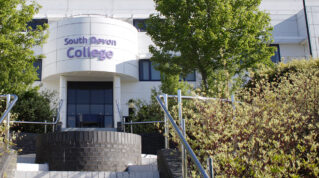From classroom-to-career; the record of colleges sponsoring multi-academy trusts is a mixed one. Jessica Hill investigates if there is a secret to their success, and why some have fallen by the wayside.
While some see colleges and schools as uncomfortable bed partners, others claim there are profound benefits to be reaped for students when a multi-academy trust (MAT) is sponsored by a college which is actively engaged in the running of its schools.
And our analysis shows the college-led trust model is slowly gaining traction in some areas. But the path along the way is littered with failures, with one expert in the sector predicting around half of those remaining will disappear soon.
Although the Department for Education data appears to show 41 colleges have approval to sponsor trusts – up from 21 in 2018 – our analysis shows only 29 colleges appear to have schools under their remit.
But the number of schools being sponsored by colleges is up by 174 per cent in the last four years, from 57 to 156, with approved colleges now sponsoring more than five schools on average.
In some of those that failed, the college was one of several local sponsors. The Salford Academy Trust was set up in 2012 as a partnership between Salford Council, the University of Salford and Salford College, but in 2018 the schools were transferred to another trust after the regional schools commissioner cast doubt on the “ability and scale” of the trust to provide the level of support required. Its four schools had all received poor Ofsted ratings.
For others, the trusts folded because of poor reputations or because of their small size. Burton and South Derbyshire College’s education trust, set up in 2014, had one school – the Kingfisher Academy in Burton – which it gave up in 2018 a year after Ofsted rated it inadequate.
And Newbury College Academy Trust is set to merge next year with The Thames Learning Trust after it opened its only school, Highwood Copse Primary School, in 2021.
But some college and trust leaders claim there is a recipe for success in the model.
The ‘golden thread’
Some college-led trusts are believed to have failed because they were driven by financial motivations rather than conviction, and Sam Parrett, group chief executive and principal of London South East Colleges, thinks it essential for a college to only take on schools for the “right reasons”, with a “golden thread” permeating through the organisations that binds them together.
While the colleges’ London South East Academies Trust is on sound financial footing with a turnover of just over £30 million, the “very strong reasons” for setting it up in 2014 were not financial.
Parrett is frank about how the trust takes on schools that “no one else wants”, and that turning those struggling schools around requires a “deep personal commitment in our DNA”.
“There is a multi-academy trust dividend, and it’s greater when you pool services”
Since its launch in 2014, Parrett’s colleges’ trust has sponsored seven alternative provision and special schools and one mainstream school across Bromley, Bexley and most recently Surrey.
‘Swan’ schools
All its schools inspected by Ofsted since being taken over are good or outstanding.
But Parrett describes them as ‘swan’ schools – ‘schools without a name’ – when they first join the MAT.
“In most instances, the local authority and the DfE come to us and say, ‘we’d really like you to take on this school…but please change its name because its reputation so bad that we need it to have a fresh start’,” she explains.
“Our job is to make them glide and do all the beautiful things that a swan does above the water, whilst you’re paddling frantically underneath to keep it going.”
For Parrett, the golden thread has been around special educational needs provision. The trust’s journey started following the 2013 SEND reforms when the college’s local authorities of Bromley and Bexley became pilots for education, health and care plans, with the college as the transition to adult phase.
“We started working closely with all our special schools on ‘what does the local offer look like? And what does progression look like?’
“At that time, some of the schools were not performing very well in Ofsted terms. We had a long, hard debate at our governing body. We could see that through working with our schools where there were young people experiencing disadvantage excluded from mainstream schools who went on to do well in the college. We could see how together we could be much stronger.”

Technical education
For Activate Learning Group, which includes seven colleges, the golden thread is its focus on technical education – with four of its six schools being university technical colleges.
While for some colleges sponsoring a MAT simply requires them to appoint members to the trust’s board, for others the relationship is more involved.
Chief executive of Activate Learning Education Trust, Joanne Harper, explains how although the colleges and schools exist within two separate legal entities, they “share a learning philosophy – ‘brain motivation, emotion’ – right the way across, which really brings us closely together”.
College sponsored MATs also utilise their close connections with businesses in their area. In some cases that means bringing children onto college campuses to see courses on offer or take part in extracurricular activities.
Dudley Academies Trust, which has six schools sponsored by Dudley College of Technology, has gone a step further, with some school pupils working with college engineers on a project to build a two-seater aircraft which the trust’s chief executive Jo Higgins claims in two years’ time will be “flying over Dudley”.
Quality matters
Parrett plays an active role in the sector in supporting smaller MATs struggling with leadership and governance, and provides advice on how to merge.
With the government’s 2030 target for most MATs to be on a trajectory to have at least ten schools or 7,500 pupils, most college led trusts have an ambition to grow.
London South East Academies Trust is about to take on its ninth school in January, Michael Tippett special school in Lambeth, and is in discussion with two other special schools and two mainstream schools.
Parrett believes it is likely her trust will become larger in financial terms than its colleges within the next two to three years. But she admits that growing a MAT is difficult for a college to do if it “only wants good and outstanding schools to come to it, because there’s a lot of competition.
Why would a school join a college-run MAT, when they could join one [run by experts in] primary or secondary schools?”
The answer for some lies in the branding a well-regarded college can provide it.Higgins believes her organisation was “really helped in the early phases” by Dudley College’s outstanding Ofsted rating, which“ enhanced the character of the mat and boosted its branding”.
The trust has the green light from DfE for further growth focused on transforming struggling schools, and is “moving towards the government’s target of ten schools”.
Economies of scale
However, one of the biggest advantages for being part of a college-led trust is financial. Savings in back-office functions, for Parrett, means “more support in the front line”. For her, the efficiency savings have been “significant”. The group pooled its colleges’ and schools’ central services, with group directors of finance, IT, marketing and estates, with shared resources coming in handy particularly when a particular school requires extra help.
It also means greater purchasing power, with savings from a centralised MIS system coming in at “hundreds of thousands of pounds”.
Work is currently underway across the schools and colleges on a programme of resilience and wellbeing for staff.
And the group has a framework for training and development of staff from teaching assistants at level two and three apprenticeships through to level seven degree apprenticeships and PhDs for staff.
“We’ve got all of those wraparound things that cocoon and support a school to develop, that go far further than they would have in isolation,”
Parrett explains. “There is a MAT dividend, but that dividend is greater when you pool all of the support services of the college and the
school together to create that central team.”
Lines of accountability
Most college MATs are made up of two separate legal entities, a college corporation and the MAT itself under one group governance structure, with both bodies working together at committee level where they have shared interests educationally.

“The more successful you are the more autonomous you are, the less successful you are, the more accountable you are”
Parrett describes her group as having “very structured formalized accountability frameworks and schemes of delegation”, with the schools given some independence to be embedded within their communities, because “the head teacher knows their local community better than I do”.
The shared education group then provides “infrastructure” to help “grow and support” the schools.
London South East uses the ‘earned autonomy model’ of intervention promoted by the Local Government Association. Parrett describes it as “we monitor you, we risk assess you, and the more successful you are the more autonomous you are, the less successful you are, the more accountable you are for what you’re doing”.
Parrett believes that structures in which “you haven’t got a single line of accountability” can prove problematic, and “might not be easy to grow from”.
Levels of delegation
In some other trust models, the college takes more of a back-seat role.
Harper is very clear that her MAT is “sponsored” by Activate’s seven colleges, which have “elements going into the governance of the MAT – but they don’t lead it”.
“We have grown that, so the sponsor only has a seat on the members board, so it’s an ‘eyes on, hands off’ approach. But we also talk to [college] curriculum leads about the courses running.
“Where it works is where there are clear levels of delegation and real understanding of partnership and trust.”

Smaller college sponsored MATs often have a single governing board. In 2015 Telford College sponsored TCAT MAT comprising of just one school, the Kickstart Academy, which operates from college owned premises. It is overseen by one board with a college appointed vice chair. The college is currently working towards transferring the academy to another trust.
Success is not guaranteed, though there are clear lessons to be learned here for colleges considering going down the MAT route.
Competition for post-16 places isn’t going away, but with colleges now finding themselves back in the public sector – with all the new associated challenges – the question now is, are college leaders up for the risk?

















Our local MAT South Bank Academy Trust has behaved appallingly. Attempts to fire and re-hire teaching assistants on term time only contracts has caused an outcry locally and led to a very informative meeting with Union reps and local Councillors last Thursday. (See York Press) Extremely well attended by many staff and parents. The Trustees and CEO declined to attend. To see the pockets of such tenuous management being well-lined at the expense of dedicated and already underpaid key workers is more than unacceptable.